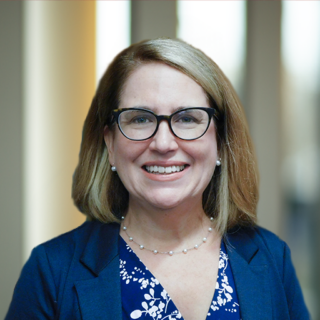Community Open Data Engagement (CODE): From Theoretical Research to Practical Service Development
Andrea Copeland and Ayoung Yoon
The open data movement has granted unprecedented public access to data from government, research, science, and the private sector. Yet, these data remain largely underutilized by the general public. As a civic intermediary, public libraries can empower community members to actively participate in open government and data ecosystems by offering open data services. This multi-stage project aims to improve community engagement with open data, progressing from theoretical research for the development of a service model to the implementation and refinement of the model in public libraries.
Stage 1. Data Reuse for Local Community explored the role of public libraries in supporting communities' open data reuse and how they can provide services that connect community members with existing resources and data infrastructure.
Stage 2. mCODE: a theoretical model for Community Open Data Engagement is a service model developed based on findings from stage 1. It aims to increase access to open data and to meet community data reusers’ needs with an emphasis on the local context and community engagement, reflecting public libraries' strong position to address the place-based needs of their communities.
Stage 3. Building Public Libraries’ Capacity for Open Data Services: mCODE Implementation partners with 4 public libraries to validate the feasibility of mCODE across different public library contexts and test its effectiveness in 1) promoting open data access, 2) providing data literacy instructions for public, 3) developing library programing from open data, and 4) building internal data capacity for future service development.
Stage 4. Scaling up mCODE
Developing a Social Service Model in Rural Libraries
Ayoung Yoon
Libraries, as community and civic centers, confront the emerging challenge of meeting the social needs within their communities. This project aims to develop a social service model for public libraries, especially those in rural areas serving underserved populations. It will empower library and information professionals with the necessary skills and knowledge to fulfill this new role in social services, offering a new approach to meeting the social needs of rural communities in nontraditional settings.
Advancing STEM Education through Community Partnerships and Online Programs
Soo Hyeon Kim
This research theme focuses on the development and implementation of STEM education programs through community partnerships and online platforms. The projects under this theme aim to increase access to STEM education for underserved communities, such as rural children and families, and explore innovative ways to integrate STEM into non-traditional settings, such as public libraries and home environments. The studies investigate the transition of physical library makerspaces to online settings, the impact of emergency remote teaching during the pandemic, and the co-design of culturally relevant online engineering programming for rural libraries. Through these efforts, the research theme seeks to provide sustainable and equitable solutions for advancing STEM education and promoting community engagement in STEM learning.
CATpc: AI chatbot to increase cultural relevancy of STEM lessons, engage marginalized students
Sunandan Chakraborty
The project adopts a community-based participatory approach to develop an AI chatbot that generates culturally aware text. The project will use focus groups to elicit training data, incorporate cultural nuances, and use sentiment analysis to ensure appropriate responses. Human-centered AI methods will continuously incorporate user feedback to improve the chatbot's performance. The project aims to create a model for developing community sourced AI language learning models that can be refined and researched, resulting in a beta-level chatbot for teachers to improve their lesson plans and learning environments.
A Novel AI-based Approach to Facilitate Code-Switching for AAVE Speaking Students
Sunandan Chakraborty
Code-switching is a skill for working between dialects of a language, such as African American Vernacular English (AAVE) and Standard American English (SAE). This project aims to build an automatic dialect-to dialect translation model between AAVE and SAE, which will help AAVE-speaking students develop code switching skills critical to academic success.
Blockchain-AI Synergy in Special Education: Enhancing STEM Learning for Students with Disabilities
Yan Zhuang
Blockchain-AI Synergy in Special Education: Enhancing STEM Learning for Students with Disabilities addresses the data breaches and inconsistencies in managing Individualized Education Programs (IEP) and lifelong learning portfolios. The project has three objectives: 1) develop a secure and efficient blockchain framework for IEP management; 2) create a blockchain-based system for verified and private academic records; and 3) implement an AI-driven platform for personalized learning experiences that nurture students' innate STEM talents. This project aims to provide secure, personalized, and accessible STEM education for students with disabilities.
Community Data Curation Competency: Curriculum Development for Master’s Education
Angela Murillo
This project enhances the training of library and information science (LIS) professionals by creating a community data curation curriculum. It extends the current understanding of data curation competencies to the context of community data, engages strategic stakeholders (educators, practitioners, and community organizations) in the process of curriculum design to reflect their specific needs; and designs a Community Data Curation Pilot curriculum to fill the current gap in data curation education to include community data curation competencies.
EdTech Governance
Kyle Jones
Educational technology (EdTech) is increasingly adopted in higher education, datafying student life to enable examination and intervention using analytics. This raises ethical concerns related to student privacy due to poor data management, gaps in infrastructure strategy, and a lack of effective governance. This project aims to create a widely transferable governance framework to enhance EdTech policies and data practices in higher education, serving as a model for public/private socio-technical system crossover.
FazBoard: AI Enhanced Teaching & Learning Systems to Improve Student Engagement, Connectedness, and Learning Equity
Fawzi BenMessaoud
FazBoard combines a digital canvas with an AI Assistant to create a dynamic educational environment. The digital canvas serves as a versatile space for teachers to present materials, engage with students, and foster collaboration among individuals and groups. Meanwhile, the AI Assistant offers round-the-clock support by providing instant responses to student queries and streamlining the collection of inquiries and learning data for enhanced analytics.









